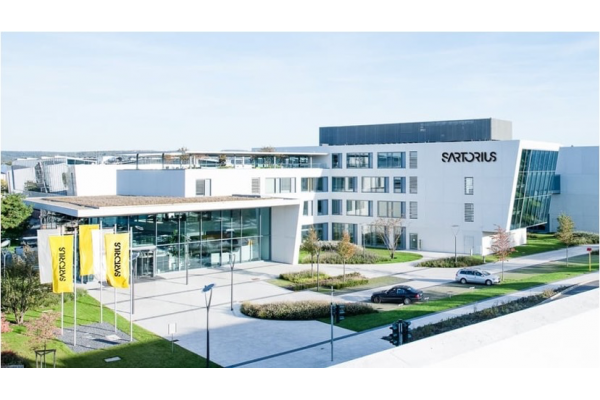In $2.6B cell and gene therapy expansion, Sartorius buys viral vector specialist Polyplus
April 4, 2023
Source: drugdu
 499
499

[Before the Sartorius buyout, Polyplus had itself been expanding through multiple acquisitions. (Sartorius)]
As the biopharma industry struggles with a dire shortage of viral vectors to make cell and gene therapies, contract manufacturers are busy beefing up their capabilities.
In the latest example of biopharma's ongoing investment in cell and gene therapy production, Sartorius has agreed to acquire French company Polyplus for 2.4 billion euros ($2.6 billion), the German CDMO said Friday.
The deal gives Sartorius additional know-how in nucleic acid delivery, including transfection reagents and plasmid DNA design, all of which are key elements in the production of viral vectors for building cell and gene therapies.
Formed in 2001, Polyplus employs about 270 people in several locations in France, Belgium, the U.S. and China. Before the Sartorius buyout, Polyplus had itself been expanding through M&A deals. In 2021, Polyplus bought Asia-Pacific-focused reagent supplier Biowire.
Besides its core transfection reagent portfolio, Polyplus in 2022 added DNA vector design capabilities through the acquisition of French startup e-Zyvec. The company in December further expanded its plasmid DNA engineering technology by taking over Belgian CDMO Xpress Biologics.
Polyplus' portfolio is complementary to Sartorius' existing business, especially to its offering of cell culture media and other components, René Fáber, Sartorius' head of the bioprocess solutions division, said in a statement.
As an increasing number of cell and gene therapy programs move through clinical development, more viral vectors are needed to deliver their genetic materials into cells, Fáber noted.
In November, the FDA approved CSL's hemophilia B gene therapy Hemgenix, which is based on an adeno-associated virus. BioMarin is prepping for a potential U.S. launch for its hemophilia A gene therapy Roctavian. Vertex and CRISPR Therapeutics' exa-cel looks on track to become the first gene-editing therapy based on the CRISPR technology.
Already, several commercial cell and gene therapies face manufacturing bottlenecks because of the industry-wide shortage of viral vectors. Multiple myeloma CAR-T therapies by Bristol Myers Squibb and a partnership between Johnson & Johnson and Legend Biotech haven't been able to meet demand thanks to limited supply of lentiviral vectors.
And even as biopharma companies build their internal capacity, CDMOs have also been expanding manufacturing footprints for cell and gene therapies. Chinese CDMO Pharmaron recently kicked off a more than 8,000-square-meter expansion of its viral vector and nucleic acid facility in England. In January, Vector BioMed landed in the viral vector CDMO arena with $15 million in funding.
Last year, Fujifilm picked up a cell therapy plant in California from Atara Biotherapeutics for $100 million and then bought out Shenandoah Biotechnology for the latter's recombinant proteins used in making cell and gene therapies.
But there are also some signs of cooling in the field. After aggressive expansions, WuXi AppTec's cell and gene therapy arm, WuXi Advanced Therapies, recently chopped about 50 jobs at its Lingang facility in Shanghai, according to Chinese media reports. The layoffs mainly affect the commercial manufacturing team and came as part of a business adjustment, WuXi said on a Chinese investor platform.
Large pharma companies such as Biogen, Novartis, GSK and AstraZeneca have recently pulled out of cell and gene therapy programs, as well.
By editor
Read more on
- The first subject has been dosed in the Phase I clinical trial of Yuandong Bio’s EP-0210 monoclonal antibody injection. February 10, 2026
- Clinical trial of recombinant herpes zoster ZFA01 adjuvant vaccine (CHO cells) approved February 10, 2026
- Heyu Pharmaceuticals’ FGFR4 inhibitor ipagoglottinib has received Fast Track designation from the FDA for the treatment of advanced HCC patients with FGF19 overexpression who have been treated with ICIs and mTKIs. February 10, 2026
- Sanofi’s “Rilzabrutinib” has been recognized as a Breakthrough Therapy in the United States and an Orphan Drug in Japan, and has applied for marketing approval in China. February 10, 2026
- Domestically developed blockbuster ADC approved for new indication February 10, 2026
your submission has already been received.
OK
Subscribe
Please enter a valid Email address!
Submit
The most relevant industry news & insight will be sent to you every two weeks.



